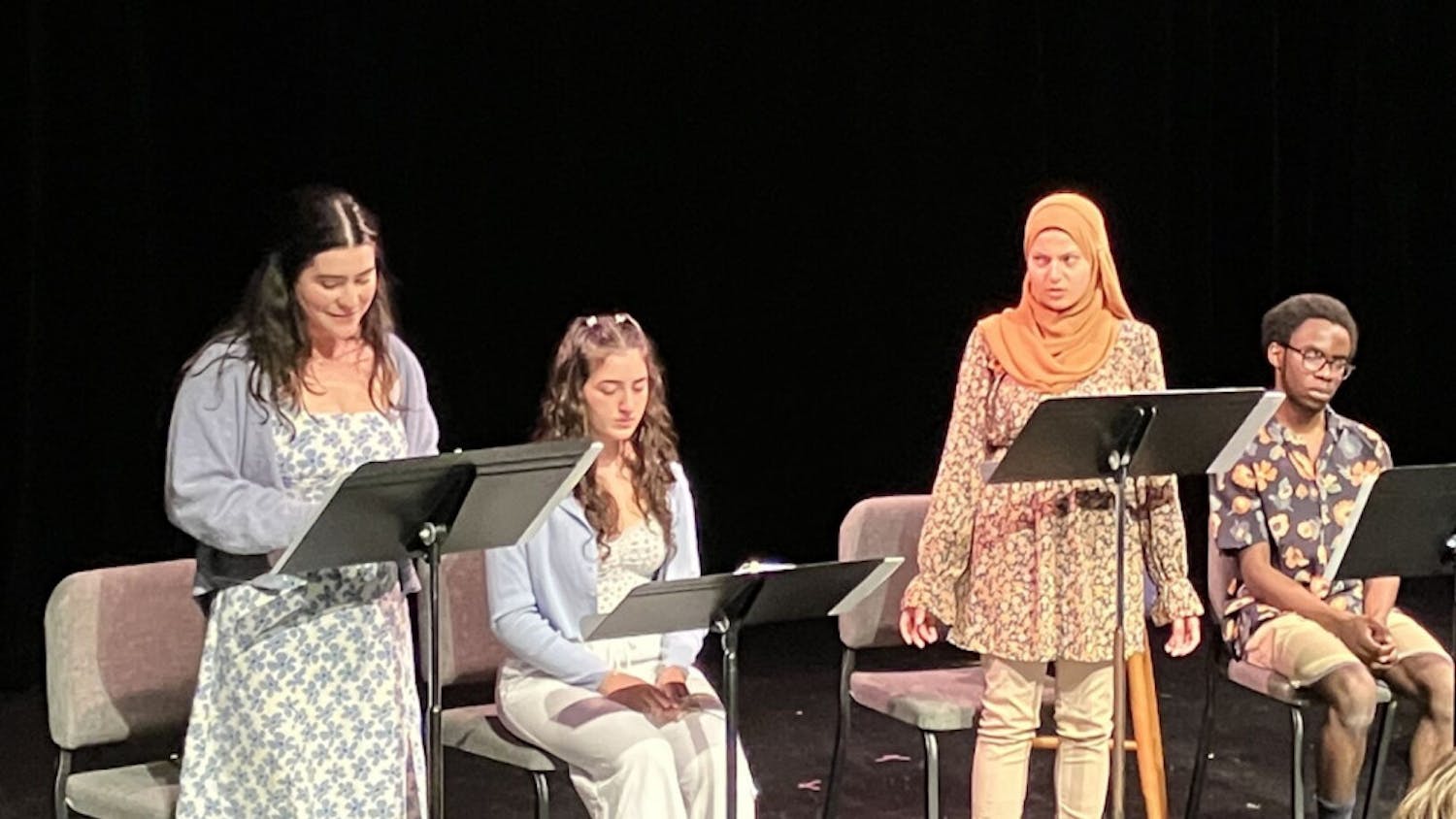
Photo Courtesy of Theater Emory
The post-apocalyptic world is a cluttered area in the world of fiction, but when it’s done right, the result is just beautiful. This is precisely what playwright José Rivera achieves with his crumbling version of New York City in Marisol.
Marisol, a revitalized 1992 production, opened in Emory's Mary Gray Munroe Theater on Thursday, April 3. The show, put on by Theater Emory, was the winner of the Off-Broadway Obie Award for playwriting just a year after its premiere. Rivera is the recipient of numerous playwriting awards and in 2005 received an Oscar nomination for his film “Motorcycle Diaries.” The show takes place in post-apocalyptic New York City, following the journey of the title character Marisol Perez, a twenty-something woman trying to survive in a world that decays more and more with every passing day due to the existence of a senile God. The God that has for so long watched over the Earth is old and dying, and the world as a result is falling apart. The climate is changing, governments are being overthrown, and everyone is suddenly spending every moment of their lives in fear of each other.
Marisol, played by Emory College senior Natalia Via, endures unbelievable trauma over the course of the performance. Marisol is told that her guardian angel has silently saved her hundreds of times from the dangers of New York City. Without her, Marisol would have died many years ago. And death isn’t the only peril the city poses — since the destruction of the world began, and a few times on stage, Marisol endures countless instances of sexual assault.
And then Marisol learns that her guardian angel is leaving her to lead the war against God. If they kill God, the Angel tells her, the world will be saved. When her Angel leaves her, Marisol must suddenly face an entirely new reality: without the angel to protect her, what chance does she have of surviving in this terrifying city where she must kill or be killed and every step brings new vulnerability? Her world is turned upside-down, and the dangers she meets are even more daunting, the risk of walking out her door even higher. The audience follows her through the chilling new Bronx, where every moment is treacherous.
Although Marisol was written over twenty years ago, the issues that it deals with are still relevant today. The altered reality that Rivera creates from horrific climate changes, police-state brutality and poverty is eerily relatable to problems the world endures now. The show is very dark and unsettling, intended for a mature audience.
These serious issues are prevalent throughout the performance, but they’re interspersed with moments of sheer absurdity, putting the audience in stitches for a moment before yanking them back into the dark reality of the play. The characters are so bizarre at times that they’re almost unbelievable, but they somehow fit into the decaying world Rivera has shaped. Their insanity is understandable in a world where the moon has disappeared, all the crops taste of salt and people are being hunted on the streets.
By the end of the first act on opening night, the audience was absolutely captivated. Chatter filled the house during intermission; in particular, they couldn’t seem to stop talking about professional actor and performance artist Danielle Deadwyler’s performance as Marisol’s angel.
“She’s intense,” said an audience member between acts. “She can command a stage.”
In the second act, the absurdity of the crumbling Bronx heightens, and Marisol faces bigger and more daunting issues, which leave audience members tense up until the very end. In many scenes, I found myself sitting rigidly as I watched, terrified for Marisol, urging her to prevail.
Marisol runs until Sunday, April 12. Rivera, who is in residence on campus this week, will hold a post-show conversation on April 8.
The show is captivating, and with a limited amount of performances, tickets are going fast. A beautifully-rendered urban fantasia, Marisol is a stunning, powerful performance that will leave audiences with chills.
-Kelsey Klosterman, Staff Writer





